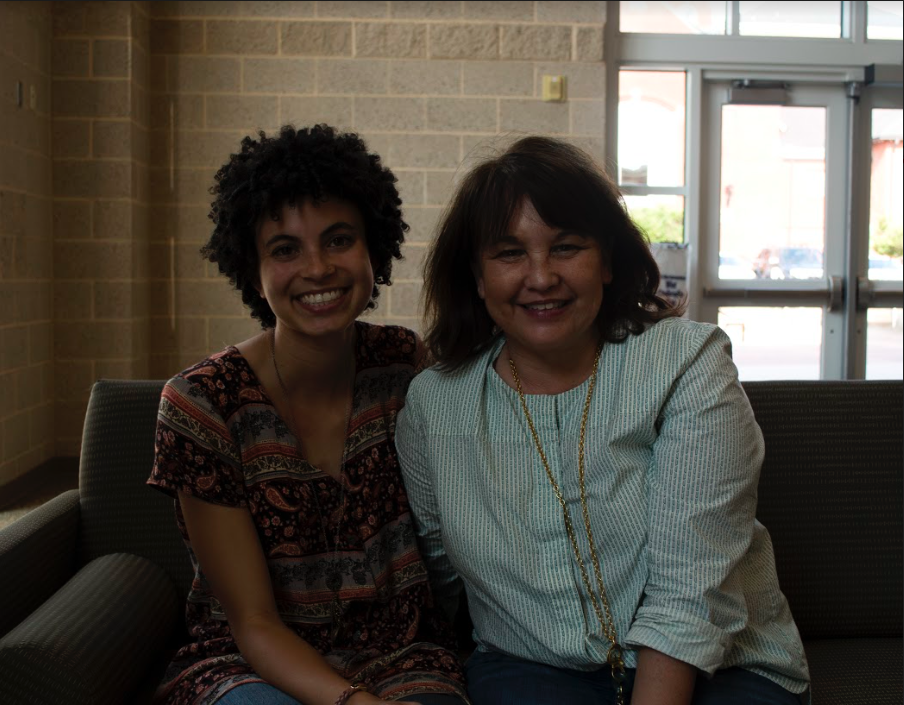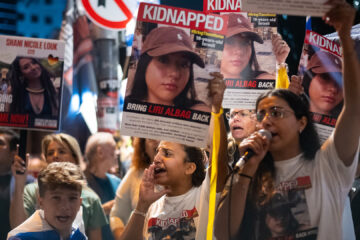With fast fashion plastered on every corner and in every shopping mall, Lori Benson went against the status quo when she created her boutique, Style Recycled. Style Recycled is a boutique located in downtown Rock Hill that practices fair trade, making all the clothes sold there sustainable as they are either made from 100% cotton, second hand or “upcycled”.
“It [fair trade] really talks about the human element of the manufacturing of clothes. A lot of clothes are made in sweatshops and they use child labor, making 20 cents an hour. Women are given birth control so they won’t get pregnant because if they don’t get pregnant they can work…so basically fair trade are clothes that are not made in a sweatshop. The clothes are manufactured in an environment where people are getting paid fair, working wages,” said Benson.
Benson’s passion for sustainable fashion also known as eco-fashion really formed after she viewed the documentary, The True Cost.
This documentary talked about fair trade and gave examples of women and children working in sweatshops in places such as China and Bangladesh getting paid an amount that was not a livable amount of money. The film resonated with Benson to want to make a difference in the fashion industry.
Benson believes eventually fair trade and sustainable fashion will become more well-known and more normal in society.
“You think about organic food and where it was 10 years ago. You can get organic food at Walmart now. So it’s gone a little bit more mainstream then what it was and I think it will be the same way with clothing. It’s just going to be harder,” said Benson.
Fair trade, sustainable clothes are also better for your skin. Not wearing polyester is better for a person’s health and skin being as though polyester is made of petroleum.
Fast fashion not only harms people, but it is known seriously damage the environment as well. As Benson said there are now about 24 seasons in the fashion industry, there used to just be 2. Now clothes that are not being used are getting tossed out which creates more waste, creating pollution.
“Throwing out clothes goes towards the pollution in hurting the environment…I read that the average American throws away 68 pounds of clothing a year,” said Benson.
Although the world of fashion today is known to harm the environment and workers in developing countries there have been great strides to make change in the fashion industry and re-use fashion “waste” to be beneficial to society.
“I just randomly got on the website for cotton and there’s a recycling program with them where they recycle denim and they turn it into insulation and then habitat for humanity can apply for a grant to get the insulation to put in their homes,” said Benson.
Benson also does a lot of upcycling within her shop. Upcycling clothes is what is known as reusing second hand clothes – such as clothes from thrift stores – and creating them as a higher quality or value.
Benson said that it is all a part of the mind set when making the switch to buy strictly sustainable clothing. “It’s fun [buying more fast fashion]…it’s cheap, like if you go to Forever 21 or H&M and get a shirt for $7 and the company has to make money…so if you’re paying $7 how much is the person making it getting paid?”
It is also possible for people on a budget to buy sustainable clothing. A person doesn’t have to pay hundreds of dollars for sustainable 100% cotton to be sustainable. Buying less and sticking to buying from thrift shops or second hand clothing stores is a cheap way to be sustainable. People can also participate in clothes swaps with their friends which includes trading unwanted clothes with friends as a form of recycling.
Benson’s fair trade boutique is located in downtown Rock Hill located at 201 East Main Street in the Getty’s building on the 2nd Floor. Benson said she is hoping to get more Winthrop students not only as customers in her shop but also to get involved in sustainable clothing and fair trade.
Although fast fashion runs the beauty and fashion industry as of right now, ethical, sustainable clothing at a reasonable price is just a few minutes down the road waiting to change the world of fashion.




